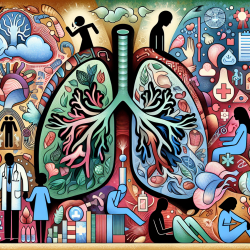In the field of pediatric speech-language pathology, data-driven decisions are crucial for optimizing therapy outcomes. A compelling study, Anthroposophic therapy for children with chronic disease: a two-year prospective cohort study in routine outpatient settings, provides valuable insights into the efficacy of anthroposophic treatments for children with chronic illnesses. This study, conducted by Hamre et al. (2009), evaluated the clinical outcomes of 435 children receiving anthroposophic therapies and offers significant takeaways for practitioners looking to enhance their therapeutic approaches.
Key findings from the study include:
- Long-term Improvement: Children under anthroposophic treatment showed significant long-term improvements in disease severity and symptom scores. From baseline to six-month follow-up, the Disease Score improved by an average of 3.00 points, and the Symptom Score improved by 2.41 points. These improvements were sustained over the two-year study period.
- Therapy Modalities: The treatment modalities included medications, eurythmy therapy, art therapy, and rhythmical massage therapy. Eurythmy therapy was the most frequently used, followed by medications.
- Predictors of Improvement: Higher baseline symptom severity, shorter disease duration, and initial consultation with a general practitioner were significant predictors of greater symptom improvement.
- Quality of Life: Significant improvements in quality of life were observed across all age groups, as measured by standardized questionnaires.
- Safety: Adverse reactions to anthroposophic therapies were infrequent and not serious, indicating a favorable safety profile.
Practitioners can leverage these findings to refine their therapeutic strategies. Here are some practical steps:
- Integrate Multimodal Therapies: Consider incorporating a combination of anthroposophic therapies, such as eurythmy and art therapy, to address both psychological and physiological aspects of chronic diseases.
- Focus on Baseline Assessments: Conduct thorough baseline assessments to identify children with higher symptom severity and shorter disease duration, as these factors are predictive of better outcomes.
- Continuous Monitoring: Regularly monitor disease and symptom scores to track progress and adjust treatment plans as needed.
- Collaborate with General Practitioners: Collaboration with general practitioners can enhance initial assessments and improve overall treatment outcomes.
Encouraging further research in this area is also essential. While this study provides robust data, comparative studies involving conventional treatments could offer deeper insights into the relative effectiveness of anthroposophic therapies.
To read the original research paper, please follow this link: Anthroposophic therapy for children with chronic disease: a two-year prospective cohort study in routine outpatient settings.










